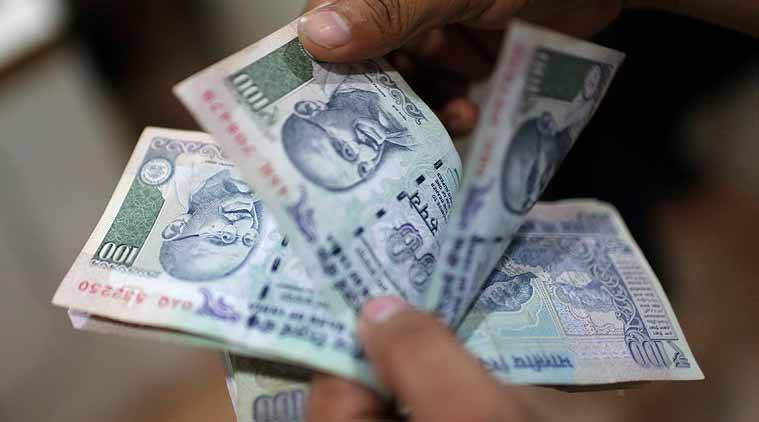Written by Rajesh Srinivasan, Supraja Srinivasan

The Finance Ministry has indicated that India is on track towards meeting the targeted fiscal deficit of 6.4% of GDP for FY 2022-23, given higher tax revenue buoyancy. While this is good news, there remains much to be done in terms of strengthening tax revenues. India’s tax-to-GDP ratio stands at 10-11%, which is significantly lower than the average of other emerging economies where it is 21% of GDP, while the corresponding ratio for OECD nations is 33%. Against this background, one may expect the upcoming Budget to continue its focus on fiscal consolidation through increased tax revenues. Fiscal consolidation, coupled with simplification and rationalisation may be the overarching themes of this Budget.
Rationalisation of capital gains
In a recent interview, the Revenue Secretary had acknowledged the need for rationalisation of capital gains provisions. To bring parity between assets of similar category, a uniform holding period may be introduced for each asset class. For example, while the holding period for listed shares to qualify as ‘long-term’ is 12 months, it continues to be 36 months for listed units of Real Estate Investment Trusts (REITs) / Infrastructure Investment Trusts (InvITs). Rationalisation of the holding period, base year and tax rates for capital gains may be expected in the Budget.
Also Read | Focus on urban development likely in Union Budget
Simplification
The low-tax regime (sans exemptions and deductions) for individuals was introduced in 2020 under Section 115BAC, as a simpler alternative, without claiming any investment-related deductions or exemptions. This was expected to prove useful for individuals who were not in a position to invest and claim deductions. However, this regime did not see many takers. These provisions may need to be rationalised and the slab rates tweaked, to make it more attractive to taxpayers, than the old regime.
Proposal for a unified ITR Form (in place of the existing six) was also being contemplated to further simplify the compliance process. However, given the investment in time and technology that is required to formulate a common utility, this proposal may not find a mention in the upcoming Budget; but may be taken up subsequently, during the course of the year or in future Budgets.
Practical challenges
With a shift to faceless assessments over the past two or more years, taxpayers have been facing practical difficulties in obtaining the orders giving effect to appellate orders, which in turn impacts their receipt of refunds determined, if any. A mechanism is needed for timely passing of orders giving effect.
Despite the setting up of the National Faceless Appeal Centre (NFAC) to streamline disposal of appeals before the CIT(A), there is still sizeable pendency of appeals and substantial delays in the hearing and disposal of matters. An amendment prescribing a timeline for disposal of CIT(A) appeals (similar to timelines prescribed for closure of assessments) may be welcome, to reduce the number of pending appeals. Further, a mechanism may be put in place to monitor requests raised by taxpayers for early hearing, to ensure timely disposal of such appeals.
Attracting foreign investment – Extension of sunset clause
India has seen a significant surge in FDI in the manufacturing sector in the recent past (76% increase in FDI in FY 21-22). A portion of this increase may be attributed to the introduction of lower tax regime for domestic manufacturing companies (15% corporate tax rate) in 2019. The benefit of 15% rate is presently available to companies set up and commence operations on or before 31 March 2024. Extending this timeline may encourage further investment in manufacturing.
Most Read 1Chandrayaan-3 mission: Dawn breaks on Moon, all eyes on lander, rover to wake up 2As Indo-Canadian relations sour, anxiety grips Indian students, residents who wish to settle in Canada 3Karan Johar says Sanjay Leela Bhansali did not call him after Rocky Aur Rani: ‘He’s never called me but…’ 4Gadar 2 box office collection day 40: Hit by Shah Rukh Khan’s Jawan onslaught, Sunny Deol movie ends BO run with Rs 45 lakh earning 5Shubh’s tour in India cancelled: Why is the Canada-based singer facing the music?
Further, few other sections (194LC and 194LD) also encourage foreign investment into India by providing concessional rates of tax for certain incomes of foreign investors. Both these sections have a sunset period till 1 July 2023. This Budget may consider extending the period, which will help Indian entities in their funding requirements and provide attractive investment opportunities for foreign investors.
Being the last full Budget of the incumbent government, we hope the government continues on the path of fiscal consolidation and delivers a pragmatic Budget.
Also ReadUnion Budget 2023: Rs 990 crore allocated for G20 presidencyUnion Budget 2023 income tax slabs: New tax regime is default, rebate inc…FM radio industry has flourished, 388 private stations in 2022 June quart…Union Budget 2022-23: Farmers cold to natural farming proposal; say not v…
Rajesh Srinivasan is a partner Supraja Srinivasan is a manager at Deloitte India. The views expressed above are the authors’ own.


